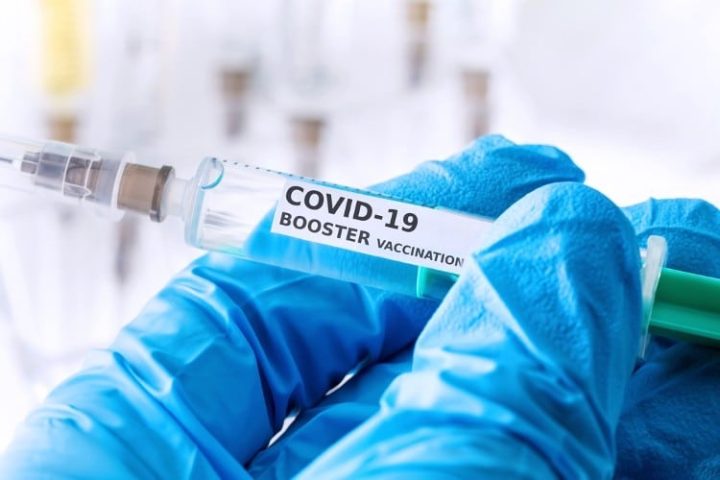
U.S. military leadership is mulling whether to require COVID booster shots for troops while also acknowledging that thousands of active-duty personnel have yet to take even their first shot.
During the Friday press briefing, Department of Defense Press Secretary John Kirby was first asked about some 40,000 unvaccinated troops across all branches and whether the Pentagon was satisfied with the progress, to which Kirby replied, “There’s more work to do,” while reassuring the press that the figures are “trending in the right direction.”
Kirby further noted that Secretary of Defense Lloyd Austin’s expectation is “is 100 percent vaccination,” as he noted that about 96.4 percent of all active-duty personnel have gotten at least one shot, with 90 percent being fully vaccinated. That percentage, however, drops when members of the National Guard and Reserves are included. The recent data shows that about 74 percent of the total military force, including the active duty, Guard, and Reserve, are fully vaccinated, per the press secretary.
Kirby stressed that COVID vaccination is a “mandatory military readiness requirement” that all soldiers must follow, except those who obtained an exemption on medical or other legal grounds.
Getting any kind of exemption from COVID vaccination in the military, however, is a difficult task. As The New American has previously reported, the Navy only granted six permanent medical exemptions while approving zero religious waiver requests, per the Navy site. In comparison, the Air Force has granted 1,866 airmen and Space Force guardians exemptions from the COVID vaccination, the vast majority for medical reasons. Notably, as of November 13, over 16,000 U.S. service members in all military branches have submitted applications for a religious exemption, but none was granted.
Kirby was also asked about a recent comment from President Joe Biden’s chief medical advisor, Dr. Anthony Fauci, that “it’s going to be a matter of when, not if” boosters will be needed for individuals to be considered “fully vaccinated.” He previously said boosters are a “part of the standard regimen and not just a bonus.”
Kirby called the question “terrific,” and continued, “There are active discussions here in the department at the policy level about booster shots and whether or not to make those mandatory.” No final decisions have been made yet, Kirby said, but he stressed the department will be “transparent” about the possible updates, and said the department is looking into the efficacy of boosters.
“[Secretary Austin] absolutely encourages people, if they can and if they qualify, to get the booster. But right now there is no requirement for it,” Kirby added.
The DOD’s comments came days after the U.S. Centers for Disease Control and Prevention (CDC) had expanded its COVID booster recommendation to include 16- and 17- years-olds. The CDC now says that those who received either the Pfizer-BioNTech or Moderna mRNA vaccine should get a booster dose at least six months after they complete their primary series. Anyone who received the Johnson & Johnson shot should get a booster dose two months after they complete their single-dose primary series. The nation’s top health agency specifies that people may choose to mix-and-match COVID shots even though no long-term safety studies have been done to support such a recommendation.
There is a possibility that additional annual boosters will be recommended/mandated since the immune protection generated by the vaccines lasts for a very limited time.
The Pfizer CEO Albert Bourla has recently said that annual “revaccination” against COVID will become the “most likely scenario” that will keep people “really safe,” since the virus mutates and immunity wanes. The statement has been previously echoed by other vaccine manufacturers, as The New American reported.
Dr. Fauci “hypothesized” in the recent interview with STAT that “the current vaccines will provide enough protection against the new variant for most vaccinated and boosted individuals,” and that Omicron-specific boosters may not be needed, even though the pharmaceutical companies are already working on their development.
As of late November, 79 active-duty personnel have died of COVID complications.
At the same time, the rate of vaccine-related injuries and deaths connected to the vaccines has far outpaced the number of COVID-related casualties in the military, says Dr. Lee Merritt. While the exact number of adverse reactions to the jabs is unknown, the doctor says, “With the vaccine program we’ve ostensibly killed more of our young active duty people than COVID did,” citing numerous reports of tumors and over 80 cases of myocarditis (as of August) following the COVID shots given to the military.
In November, Lieutenant Colonel Theresa Long, a senior U.S. Army aerospace medicine specialist who has treated soldiers injured by COVID vaccines, testified in the U.S. Senate that COVID vaccines pose a greater danger to the health of American servicemen and military readiness than COVID itself and condemned the Biden administration for treating men and women in uniform as “lab rats.” Long added that the Army Public Health Command confirmed to her that adverse events following the vaccination were not tracked, traced, or monitored.
Currently, the Biden administration is facing multiple legal challenges to the COVID vaccine mandate for the military, as The New American has reported (here and here).





